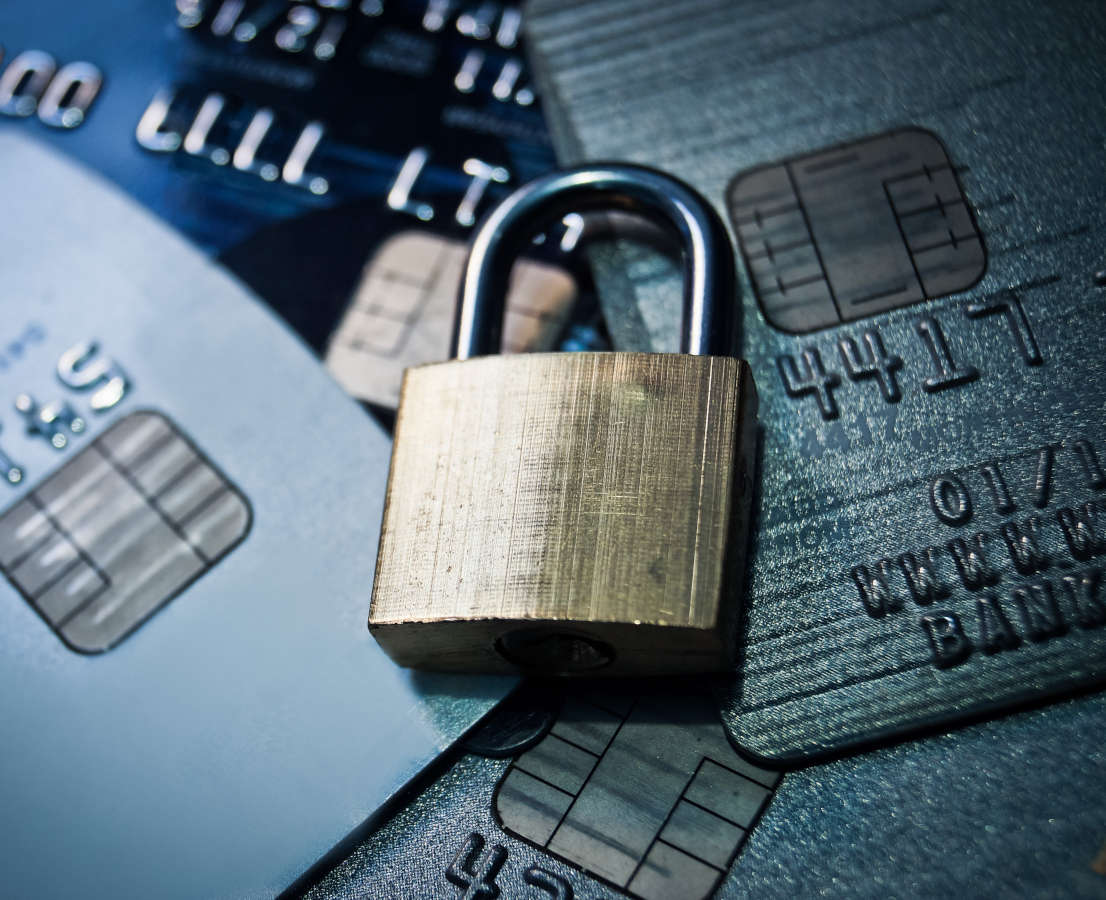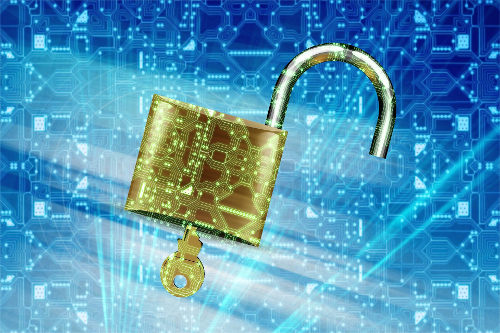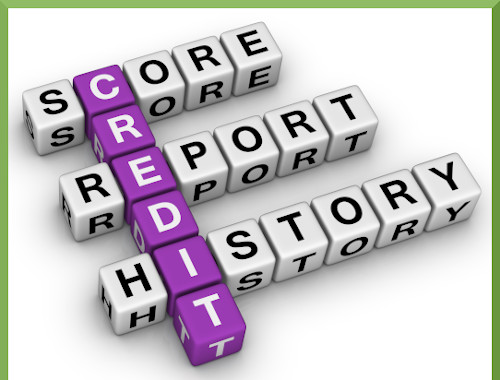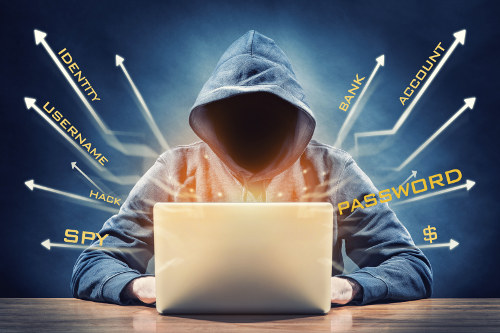Identity Theft
According to the Federal Trade Commission (FTC), identity theft is a serious crime in America. It occurs when an individual uses your name, address, Social Security number (SSN), bank or credit card accounts, or other personal information, without permission, to commit fraud or other crimes. It is important to understand what identity theft is, how it happens and how to protect yourself.
If you become a victim, your best defense is to recognize it quickly and take immediate action to mitigate its effects. It can take months or years and thousands of dollars for victims to clear their names and credit records. In the meantime, victims may be refused loans, lose job opportunities, and be arrested for crimes they did not commit.


Identity Theft
According to the Federal Trade Commission (FTC), identity theft is a serious crime in America. It occurs when an individual uses your name, address, Social Security number (SSN), bank or credit card accounts, or other personal information, without permission, to commit fraud or other crimes. It is important to understand what identity theft is, how it happens and how to protect yourself.
If you become a victim, your best defense is to recognize it quickly and take immediate action to mitigate its effects. It can take months or years and thousands of dollars for victims to clear their names and credit records. In the meantime, victims may be refused loans, lose job opportunities, and be arrested for crimes they did not commit.

Avoiding Identity Theft

Understand What They Do.
Identity thieves work in many ways, like:
- Opening fraudulent bank or credit card accounts in your name and then writing bad checks or incurring charges. The overdrawn or delinquent accounts appear on your credit report.
- Changing your billing address and incurring charges on your existing credit card accounts. Because you never receive the statements, you are unlikely to recognize the problem for some time.
- Establishing unauthorized loans in your name.
- Using your name and background information to obtain employment or medical treatment.
- Using your name if they are arrested for a crime.
- Committing tax-related fraud by using your SSN to file a tax return to get a refund.

How Does It Occur?
Identity thieves use various methods to steal your information, such as:
- Stealing your wallet or purse.
- Going through trash bins or unsecured mailboxes for unshredded personal information.
- Stealing newly issued credit cards, utility bills, insurance statements, benefits documents or other information from unsecured mailboxes.
- Completing a change of address form to divert your mail to another location.
- Posing as a loan officer, employer or landlord to obtain your credit report.
- Shoulder surfing at automated teller machines (ATMs) to capture your personal identification numbers (PINs).
- Placing malicious software (malware) on your computer that can steal user IDs, passwords, and more.
- Hacking into computer databases and stealing your personal information.
- Stealing files from your employer, merchants, physician’s offices or other businesses that maintain your personal records.
- Conducting phone or e-mail scams or hoaxes requesting that you provide personal information to claim a prize or update an account.

Reduce Access to Your Personal Information.
Nothing you can do will guarantee protection against identity theft in all circumstances. However, you can minimize your risk by reducing access to your personal information.
- Memorize your SSN.
- Never carry your number in your wallet.
- Protect documentation that displays your SSN.
- Do not have your SSN or driver’s license number printed on personal checks.
- Keep account numbers confidential.
- Store personal records such as birth certificates and Social Security cards in a safe deposit box at your financial institution.
- Store your wallet or purse in a secure location while at work or in public places.
- Do not store personal information, account information, or online IDs and passwords to your financial institution on your smartphone or any other electronic storage device.
- Shield account numbers and PINs from view when using credit or debit cards.
- Use ATM's that are in familiar and well-lit locations where you feel comfortable. When approaching an ATM, have your card out of your wallet ready to use. Do not use ATMs that appear to have been tampered with. Report it to the bank.
- Use a cross-cut shredder to dispose of documents, compact discs (CDs) or digital video disks (DVDs) with personal or financial information.
- Use a secured postal mailbox. Have your mail held at your local post office when you are traveling.
- Request online delivery of bank, credit card, investment or insurance statements.
- Review your monthly financial statements for unauthorized entries or transactions.
- Do not display your full name in the phone book. Consider an unlisted phone number.
- Use a credit monitoring service.
- Review your credit report at least annually.
- Review your social network privacy settings.
MilLife Milestones
Dig Deeper



Keep Going


Avoiding Identity Theft

Understand What They Do.
Identity thieves work in many ways, like:
- Opening fraudulent bank or credit card accounts in your name and then writing bad checks or incurring charges. The overdrawn or delinquent accounts appear on your credit report.
- Changing your billing address and incurring charges on your existing credit card accounts. Because you never receive the statements, you are unlikely to recognize the problem for some time.
- Establishing unauthorized loans in your name.
- Using your name and background information to obtain employment or medical treatment.
- Using your name if they are arrested for a crime.
- Committing tax-related fraud by using your SSN to file a tax return to get a refund.

How Does It Occur?
Identity thieves use various methods to steal your information, such as:
- Stealing your wallet or purse.
- Going through trash bins or unsecured mailboxes for unshredded personal information.
- Stealing newly issued credit cards, utility bills, insurance statements, benefits documents or other information from unsecured mailboxes.
- Completing a change of address form to divert your mail to another location.
- Posing as a loan officer, employer or landlord to obtain your credit report.
- Shoulder surfing at automated teller machines (ATMs) to capture your personal identification numbers (PINs).
- Placing malicious software (malware) on your computer that can steal user IDs, passwords, and more.
- Hacking into computer databases and stealing your personal information.
- Stealing files from your employer, merchants, physician’s offices or other businesses that maintain your personal records.
- Conducting phone or e-mail scams or hoaxes requesting that you provide personal information to claim a prize or update an account.

Reduce Access to Your Personal Information.
Nothing you can do will guarantee protection against identity theft in all circumstances. However, you can minimize your risk by reducing access to your personal information.
- Memorize your SSN.
- Never carry your number in your wallet.
- Protect documentation that displays your SSN.
- Do not have your SSN or driver’s license number printed on personal checks.
- Keep account numbers confidential.
- Store personal records such as birth certificates and Social Security cards in a safe deposit box at your financial institution.
- Store your wallet or purse in a secure location while at work or in public places.
- Do not store personal information, account information, or online IDs and passwords to your financial institution on your smartphone or any other electronic storage device.
- Shield account numbers and PINs from view when using credit or debit cards.
- Use ATM's that are in familiar and well-lit locations where you feel comfortable. When approaching an ATM, have your card out of your wallet ready to use. Do not use ATMs that appear to have been tampered with. Report it to the bank.
- Use a cross-cut shredder to dispose of documents, compact discs (CDs) or digital video disks (DVDs) with personal or financial information.
- Use a secured postal mailbox. Have your mail held at your local post office when you are traveling.
- Request online delivery of bank, credit card, investment or insurance statements.
- Review your monthly financial statements for unauthorized entries or transactions.
- Do not display your full name in the phone book. Consider an unlisted phone number.
- Use a credit monitoring service.
- Review your credit report at least annually.
- Review your social network privacy settings.
MilLife Milestones
Dig Deeper



Keep Going

Recent Blogs
5 Financial Power Moves for MilSpouses
During National Veterans and Military Families Month in November, we salute the strength of our families as they support the mission of our community. MilSpouses, especially, display determination as they face the challenges of military life. We see you navigate frequent moves, deployments and often raising children as a solo parent. We understand your motivation…
Read MoreThe Year In Review: Bring Your Financial Picture into Focus
It can be fun and even eye-opening to watch those year-end montages reminiscing about the year. If you ever have that moment when you say to yourself, “Wait, that was this year?”, you could also imagine how easy it could be to lose track of the goals and financial plans you set in motion when…
Read MoreNow’s the Time to Think About Life Insurance
Hey, MilSpouses, it’s Life Insurance Awareness Month! Okay, so maybe that doesn’t make you want to break out the cake and ice cream, but life insurance is an important part of your financial plan. It can help take care of your family, giving them financial security if something happens to you or your service member.…
Read MoreBudget and Insurance: What to Do After You PCS
After months of planning and hard work, you’ve landed safely at your next duty station. Congratulations! As you kick off this next chapter in your MilLife, it’s a good time to check in on your finances. Let’s look at two key items that are likely to change after a PCS: your budget and your insurance.…
Read MoreInsurance and Estate Planning for Your Peace of Mind
Insurance protection and estate planning are key to your family’s financial peace of mind. Insurance protects you from serious financial loss and provides for your family, and estate planning ensures your wishes are carried out in case you are no longer there. Protect Your Stuff Homeowners and Renters Insurance: Both homeowners and renters insurance cover…
Read MorePCS Finances for MilSpouses: In Their Own Words
Did you set financial goals earlier this year only to have a permanent change of station (PCS) threaten to derail your family’s budget? You’re not alone. Other MilSpouses have learned how to keep their family finances intact during a move — and so can you! Here is valuable advice from their experiences. PCS-proof Your Finances…
Read MoreShowing Appreciation with Top Resources for MilSpouses
As MilSpouses, we are often asked to shoulder a big load of responsibility. When partners deploy or work long hours, managing career and home responsibilities — especially finances — can fall on us. May 10 is Military Spouse Appreciation Day, and we pause to honor your unwavering support, strength and resiliency in all you do…
Read MoreHow to Set Your Kids Up for Financial Success
During Month of the Military Child, we pause to recognize the sacrifices and highlight the resiliency of military children. As we celebrate their unique experiences, take a moment to consider how their exposure to big life events, like a PCS, impacts their understanding of financial well-being. The money lessons we teach our children while they’re…
Read More









